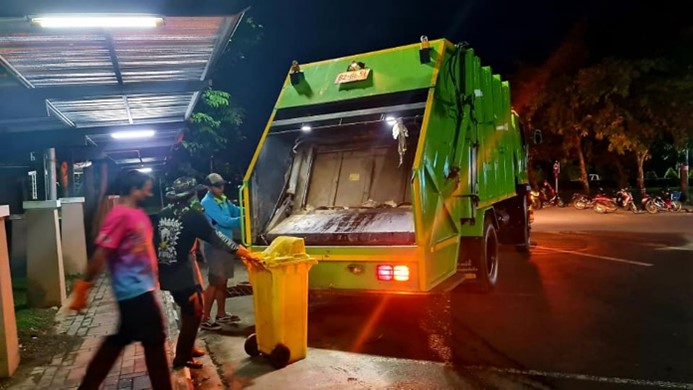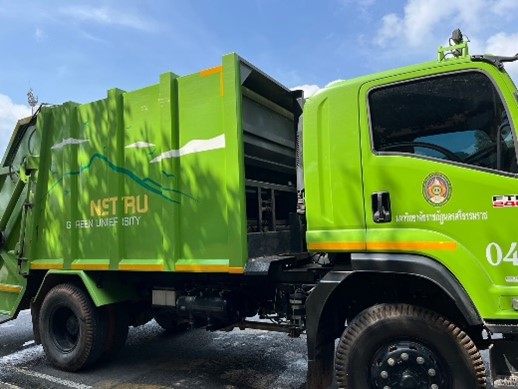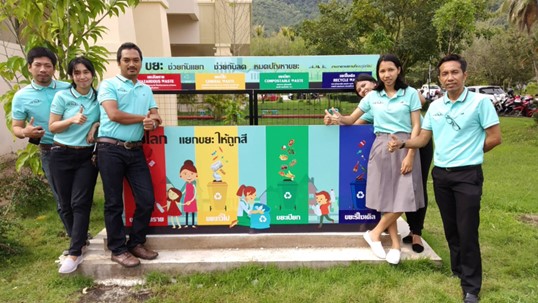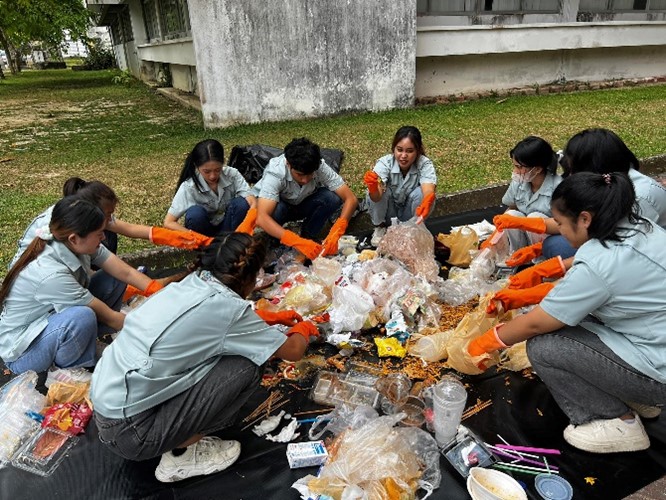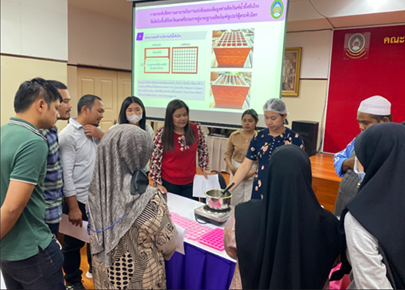The university emphasizes recycling and waste management as essential components of a sustainable ecosystem. Within the organization, the university fosters and establishes shared accountability. To accomplish the zero-waste target and carry out the waste management plan, the university has also set up a waste management policy and budget. To facilitate the daily sorting of waste on campus, the university has started a waste management project that aims to separate waste that is acceptable for sale to a waste recycling company. We efficiently use the leaf scraps and twigs that make up over 75% of the organic waste on campus by crushing, composting, and repurposing them to feed the campus trees. Approximately 15% of the food waste from trading was given to the villagers’ animals. The university operations employ leftover food to feed animals, collect leaves from cleaning the area in pens to decompose and make fertilizer, and use decorative plants from waste management to advertise events on campus. However, to assess the amount of food waste, the university follows city protocols.
Waste management in campus
